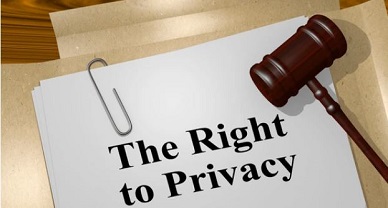How far is Comparative Advertising, not an Infringement?
Comparative advertising is also a form of advertising a product. When a person uses a competitor’s brand of a product to compare his brand for the same product while advertising for it, it is termed as COMPARATIVE ADVERTISING. Sometimes it may also lead to infringement of the trademark. But usage of a mark to a certain extent does not result in infringement. This article deals with the extent of usage of a mark in advertising which does not result in infringement of a mark.
The provisions of The Trademarks Act, 1999 say that usage of a registered trademark without the proprietor’s permission leads to infringement of the trademark. Therefore, the question arises, whether usage of a brand in comparative advertising a product leads to an infringement or not?
Sec 29(8) of The Trademarks Act,1999 is as follows:
“A registered trademark is infringed by any advertising of the trademark if such advertising–
(a) takes unfair advantage of and is contrary to honest practices in industrial or commercial matters or
(b) is detrimental to its distinctive character or
(c) is against the reputation of the trademark.”
This provision clearly prohibits anyone from using a registered trademark or deceptively similar mark in advertising to take unfair advantage of it or against the reputation of that trademark as well.
Whereas Sec 30(1) of The Trademarks Act, 1999 says that:
“Nothing in section 29 shall be construed as preventing the use of a registered trademark by any person for the purpose of identifying goods or services as those of the proprietor provided the use–
(a) is in accordance with honest practices in industrial or commercial matters. and
(b) is not such as to take unfair advantage of or be detrimental to the distinctive character or repute of the trademark.”
This provision justifies comparative advertising and allows to identify of the goods or services of a proprietor subjected to the honest and fair use of it without any hostile intentions.
The following are some of the judgments in favor of comparative advertising and laid down a few principles for carrying out a healthy comparative advertisement.
In Reckitt & Colman Of India Ltd. vs Kiwi T.T.K. Ltd. on 1 May 1996, it was held by the Delhi High Court that:
“I) A tradesman is entitled to declare his goods to be best in the words, even though the declaration is untrue…
II) He can also say that his goods are better than his competitors’, even though such a statement is untrue.
III) For the purpose, he can even compare the advantages of his goods over the goods of others.
IV) He, however, cannot while his goods with his competitors’ say defame his competitors’ goods. As this would amount to slandering of goods of his competitors. Thus, it is not permissible.
V) If there is no defamation to the goods or to the manufacturer of such goods no action lies, but if there is such defamation an action lies, and if an action lies for recovery of damages for defamation, then the Court is also competent to grant an order of injunction restraining repetition of such defamation.”
The Delhi High Court approved the observations made in Reckitt & Coleman’s case in Pepsi Co., Inc. And Ors. v/s Hindustan Coca Cola Ltd. And Anr. on 1 September 2003. The Court observed that it is not only the use of a trademark in an advertisement that gives rise to the question of Comparative advertisement, but also the manner in which an expression is used, and feelings are portrayed with regard to the competitor’s product.
Conclusion
From the above discussion, it may be concluded that a proprietor of one brand using a registered trademark of another proprietor in case of Comparative Advertising is prima facie not an infringement of trademark provided it is not defaming or disparaging or taking unfair advantage of their reputation with a bad intention. Further, the Court has clearly laid down a few criteria as to what comes under the ambit of ‘Disparagement or defamation of a Trade Mark’.
Author: M.Sai Krupa, Intern at IP and Legal Filings, and can be reached at support@ipandlegalfilings.com.


